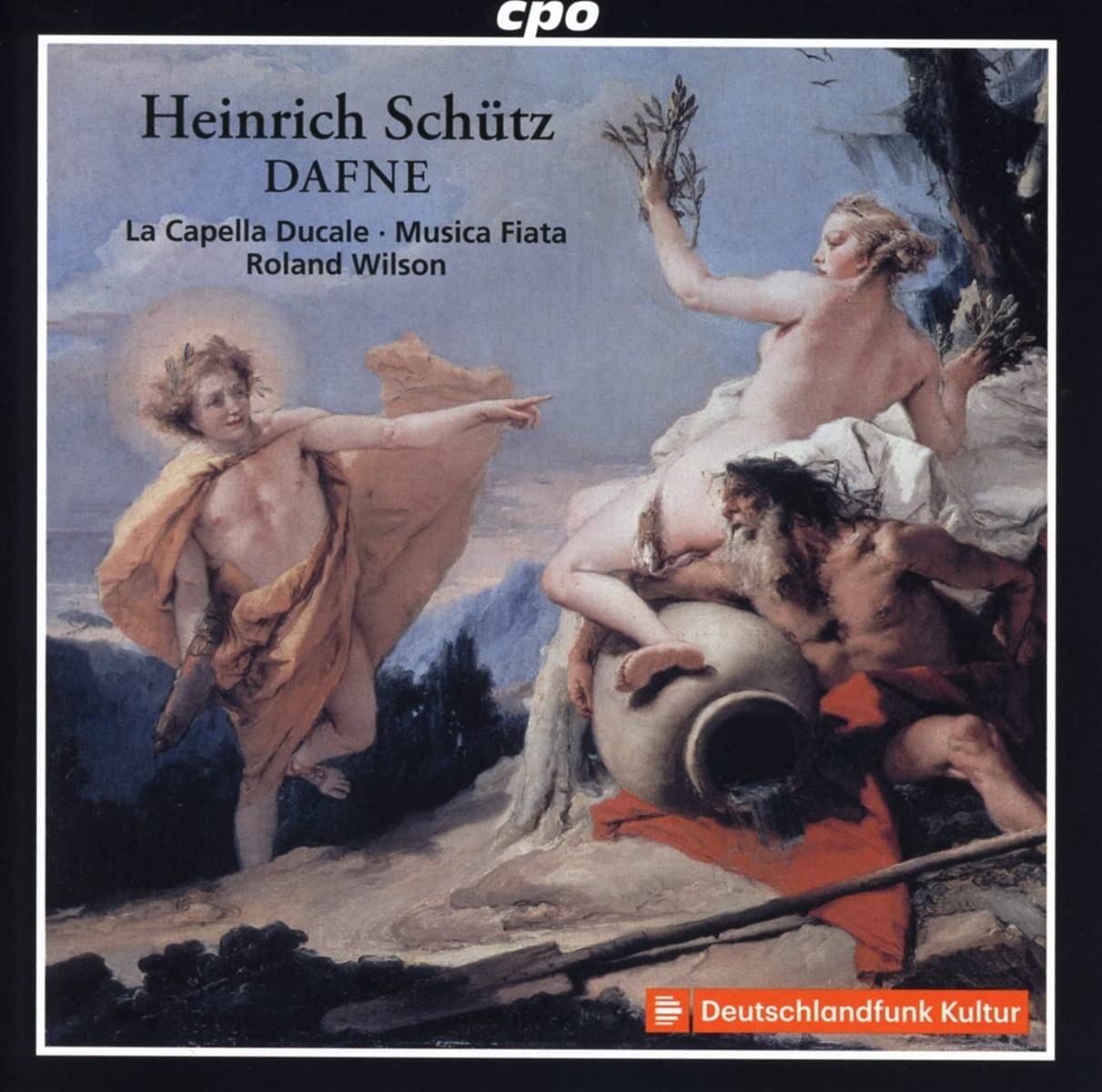La Capella Ducale, Musica Fiata, Roland Wilson
75:15
cpo 555 494-2
Click here to buy this on amazon.co.uk
[These sponsored links keep this site FREE TO VIEW]
Readers of reviews on a site devoted to early music are likely to know something of the history of Schütz’s Dafne, an “opera” performed for the wedding festivities of the daughter of his employer the Elector of Saxony in 1627. Given at the castle theatre in Torgau it then disappeared and remains lost. Given Schütz’s place as the greatest of German 17th-century composers, the notion of a lost Schütz opera has of course long intrigued music historians, but so far as I’m aware this is the first time anyone has attempted to reconstruct Dafne.
The word opera appeared in the opening sentence in inverted commas advisedly, since there is some debate as to whether or not Dafne can be termed an opera. New Grove Opera thinks not: ‘Dafne, Zwo Comoedian and Orpheo und Euridice (two other lost dramas of Schütz) are spoken plays with vocal inserts, usually in the form of strophic lieder’. Roland Wilson disagrees, making the apparently reasonable point that if Schütz was not writing an opera why would he turn to an adaptation (made by Martin Opitz) of an Italian libretto by Rinuccini that had already been set as operas by Peri (in 1597) and Marco da Gagliano (1607). Wilson points out that Opitz’s rather dismissive comments about the piece stemmed from the fact that he did not understand recitative, himself missing the point that no German drama of this period employed anything other than spoken dialogue. I strongly suspect that what Wilson has set as recitar cantando would have remained spoken dialogue
Wilson’s methodology fundamentally involves setting the libretto to other works of Schütz he believes to have some relevance, though his working methods are not clearly set out. It goes without saying that any assessment of Wilson’s reconstruction is going to involve subjective views, hopefully informed by such points as that made in the previous paragraph. I have immediately to say that I remain unconvinced both by his arguments and the aural results. Opitz’s libretto casts the work as a prologue (declaimed in recitative by Ovid, from whose Metamorphosis the story of Dafne and Apollo is taken) and five brief acts, thus suggesting Monteverdi’s Orfeo, on which Wilson leans heavily in various ways, often wrongly in my opinion, especially as to instrumentation. There is a strong sense of symmetry, each act ending with a madrigalian chorus for the three shepherds, in one case augmented by a soprano. All these choruses –and many of the solo lieder – are cast in extended strophic form and it is a fatal flaw of the performance that there is little or no convincing attempt to vary the verses, as would certainly have been the case with 17th-century performers. Many of Wilson’s choices as to instrumentation and its deployment also strike me as highly questionable. His use of wind and brass is surely far too extensive for a work of this kind, the solemnly lugubrious trombone chords that open act 1, for example, more suggestive of a scene in Hades than an introduction by the shepherds to Apollo’s slaying of the Python. More importantly, and a-historically, instruments not infrequently mask voices, either as continuo that frequently reminds the listener of a ‘flock of noisy sparrows’, to borrow the composer and theorist Agostino Agazzari’s delightful phrase, or, worse, melodically, as in act 2 where Cupid is at one point drowned out by cornetti.
The singers are competent enough, but none show much awareness of the principles of ‘prima le parole poi la musica’ that form the basis of the seconda prattica, leaving some of the extensive passages of recitative lacking any sense of dramatic articulation and, frankly, often being tedious. I’m sorry to sound so negative about a brave project to which Wilson has obviously devoted much time and energy. Others may well be less concerned about some of the historical points raised and should perhaps investigate the disc for themselves.
Brian Robins
